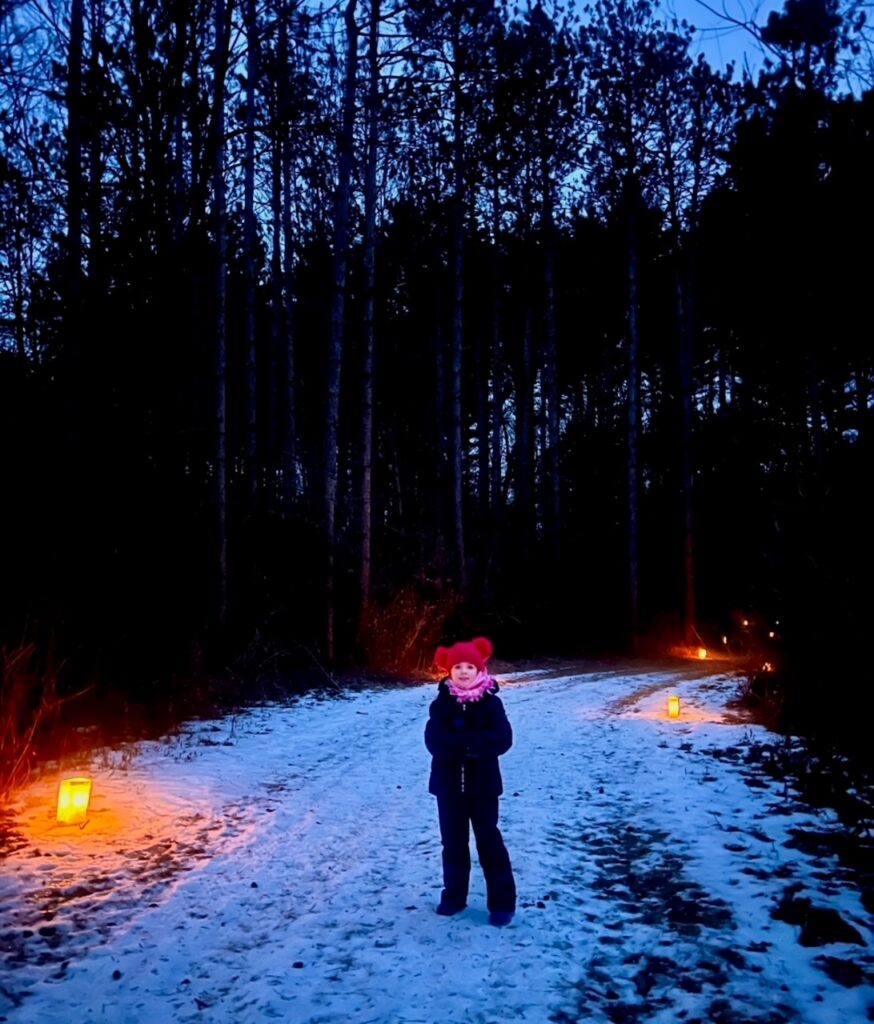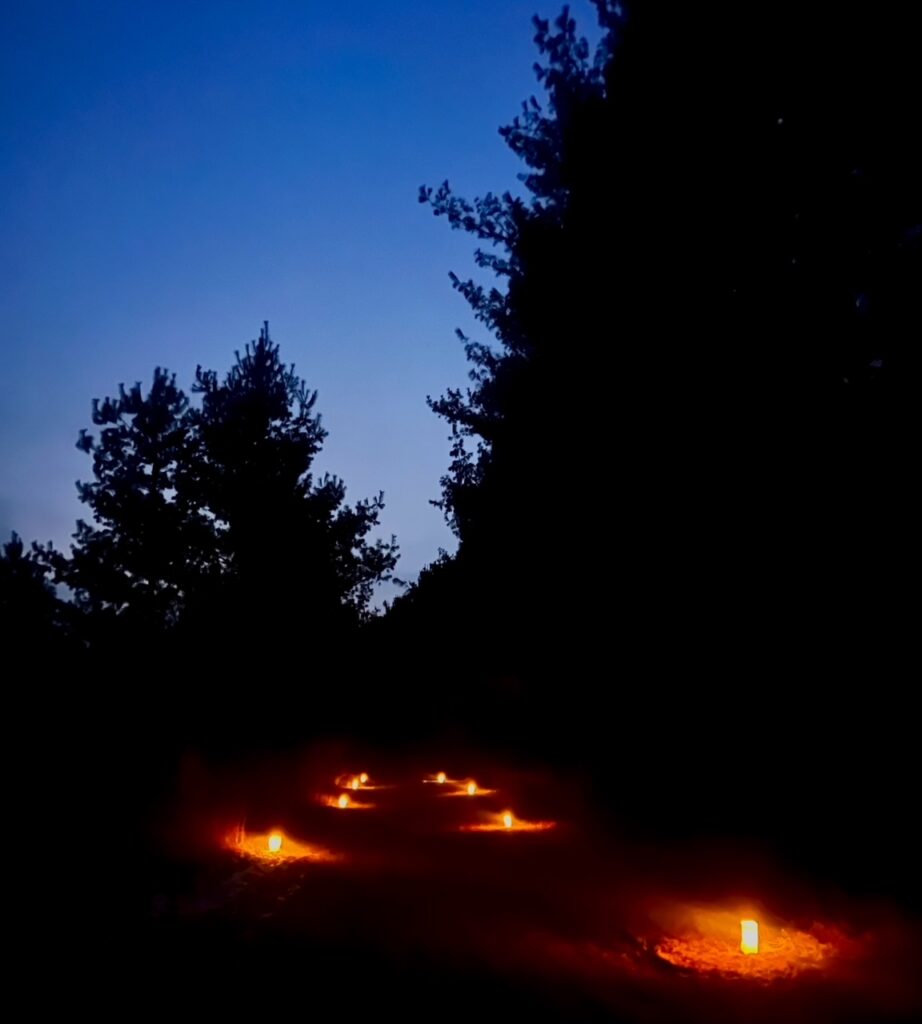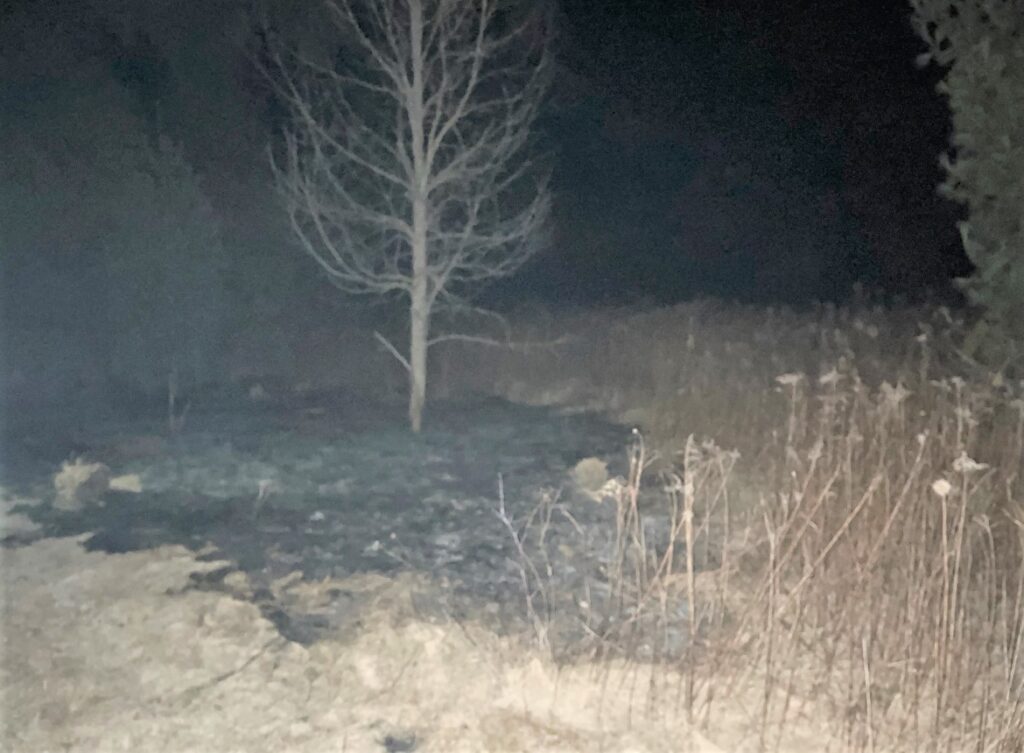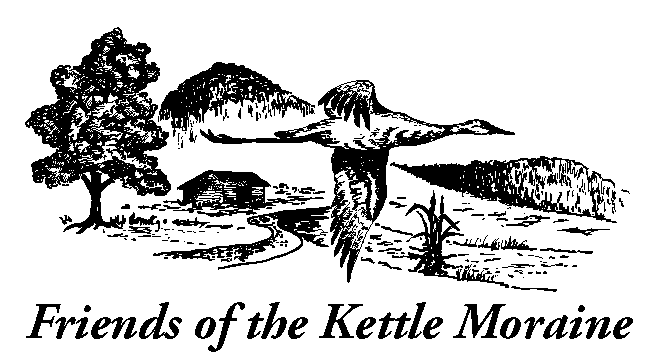FRIENDS OF THE KETTLE MORAINE BOARD MEETING SCHEDULE
Board meetings usually start at 6:00 pm
Meeting locations will be posted on this web page in advance.
2025 Board Meeting Schedule
- Thursday, January 30, 2025 (Ice Age Center)
- Tuesday, April 8, 2025 (Ice Age Center)
- Tuesday, July 8, 2025 (Ice Age Center)
- Tuesday, October 7, 2025 (Ice Age Center)
- Tentative, Tuesday, November 11, 2025 – Annual Meeting and Volunteer Dinner (location TBD)
Anyone is welcome to attend the Friends Board meetings. Interested and dedicated people are
invited to join the board at any time. For more information contact the Friends at
friendsofthekettlemoraine@gmail.com
Candlelight Ski/Hike synopsis – The Candlelight Ski event turned into a Candlelight Hike on February 5 at Zillmer Trails due to Mother Nature’s refusal to deliver snow. Despite the lack of a winter wonderland, about 250-300 resilient folks showed up. Sixteen valiant volunteers clocked in 57 hours of work—talk about dedication! The event did feature some unplanned excitement when one of the candle bags tried its best to start a brush fire. Luckily, forest staff put out the tiny blaze faster than you can say “s’mores”. From now on, we’ll bid farewell to candles because they’re just too unpredictable without consistent snow cover.



A fun time was had by all at the Candlelight Hike. One of the candle bags got away and started a small brush fire. Pic credit- Parks Staff.
EVENT ANNOUNCEMENT
 Central Wisconsin Invasives Partnership coordinator Jacob Fluur getting ready to cut some invasive plants. / Photo Credit: Central Wisconsin Invasives Partnership |
| Invasive Species Awareness 2025 Become A Partner In Invasive Species Action Wisconsin has 14 Cooperative Invasive Species Management Areas (CISMAs) across the state, which are partnerships made up of federal, state and local government agencies, tribes, individuals and community groups interested in invasive species management. Pictured above is Jacob Fluur, the coordinator for the Central Wisconsin Invasives Partnership, getting ready to cut some invasive plants. Jacob and the other CISMA leaders assist landowners, host educational events, monitor invasive species, coordinate control measures and more! If you’re looking for ways to help stop the spread or control invasive species, visit our Invasives Partnerships webpage to find your local CISMA contact. Native Plant Sales And Gardening In the next few months, native plant sales will be held around the state, and you can view many of them on our native plants webpage. Looking for more ways to incorporate native plants in your lawn and garden? Check out our brochures on adding native trees and shrubs, flowers and grasses and wetland plants. Endangered Resources Tax Checkoff Donations to the Endangered Resources Fund help the Wisconsin Department of Natural Resources (DNR) control invasive species and maintain habitat at hundreds of state natural areas, protecting unique landscapes and natural features. These special places provide refuge to 75% of Wisconsin’s endangered and threatened wildlife species and 90% of our endangered and threatened plant species. Giving to the Endangered Resources Fund is easy during tax season by adding your donation on line 24a for individual tax forms or 54a for partial year residents.  |
PROGRAMS
Welcome Spring Sunrise Walk
Wednesday, March 20, 6:30-8:15 am
Mauthe Lake Recreation Area Picnic Shelter (N1490 County Road GGG, Campbellsport)
On this first day of spring, join us as we explore how nature welcomes this new season. We will
be walking the two-mile Tamarack Trail around Mauthe Lake. A valid Wisconsin State Park
System vehicle admission sticker is required at the Mauthe Lake Recreation Area.
Spring Symphony Night Hike
Friday, April 25, 7:30-9:00 pm.
Zillmer Trail Area (located at W833 County Road SS, Campbellsport – between County Road G
and Hwy 67 near New Prospect)
An early spring evening is the perfect time to search for those incredible sky dancers, woodcock
and snipe. As the sky darkens, we will tune into those nighttime noise-makers, the frogs. This
night hike is best for those over six years old. A valid Wisconsin State Park System vehicle
Please note that the DNR urges state park visitors to do their part when visiting DNR properties. Most Wisconsin state parks, forests and other day-use areas do not have garbage or recycling bins. When you visit, please take your garbage and recyclables home with you. We all play a vital role in taking care of our natural resources. Following the Leave No Trace principles helps protect the land for generations to come. Fight the Bite! Ticks are out, and visitors should take precautions to prevent Lyme Disease.
________________________________________________________________________________________
Happy Anniversary to the Wisconsin State Park System’s Friends Group partnership program!
This year marks the 35th anniversary of the Wisconsin State Park System’s Friends Group partnership program which began in 1989. We love our Friends Group organizations and volunteers, and celebrate their passion and dedication to the Wisconsin State Park System. We value the thousands who have devoted their time and talents throughout the years to “give back” to the park system. These unique citizen-lead organizations help enhance the Wisconsin State Park System and we couldn’t do it without them (YOU)!
VOLUNTEERING OPPORTUNITIES – This year marks the beginning of the sixth year of volunteer effort to affect positive change in our environment. Many of the invasive species that we have been working on can easily diminish the biodiversity of the native flora in the Forest. We are lucky to have 12 state natural areas in the KMSF-NU. Our state natural areas are designated to preserve the best of Wisconsin prairies, forests, and wetlands. These unique places are home to 90% of Wisconsin’s threatened and endangered plant species and 75% of the animal species. We have been working intensively in two of these SNAs for the last five years. Haskell Noyes SNA is 61 acres of prime dry-mesic forest as it was never heavily logged or clear cut during the logging era of the 19th century. The land was purchased in 1947 to prevent imminent logging and was designated a state natural area in 1952. It has a rich diversity of plants that are under threat from invasive species, such as garlic mustard and buckthorn. Because of our volunteer effort, we are finding fewer and fewer of these plants throughout this SNA. Volunteer days for garlic mustard removal in Haskell Noyes SNA are as follows.
We are expanding our volunteer efforts to target two other invasive plants, Japanese hedge parsley and cut-leaf teasel starting in the Zillmer trails area. Japanese hedge parsley, an easily overlooked member of the carrot family, is particularly abundant in this part of the Northern Unit and we will concentrate on the hiking trails because it has a seed that clings to clothing and animal hair. Past control efforts by DNR staff and our volunteers have had positive results.
The Greenbush Kettle Prairie has not yet been designated a state natural area, but it is one of the few sites in the Kettle Moraine that contains original prairie vegetation. The site has 2 steep, undisturbed slopes that were never plowed separated by a flat area that was farmed. This former farm field was abandoned several decades ago and the field is growing back with many native plants. Unfortunately, the past soil disturbance has given an opportunity for non-native weeds to grow too. We are working to remove the exotic plants to encourage the native prairie.
The schedule of dates list the group outings of the Stewards of the Northern Kettle Moraine and are planned to optimize our collective efforts. We would like to accommodate additional dates and times that better fit any interested individuals or groups; please call Connie at 920-533-8939 with any requests or proposals. We will not be volunteering in August, but will start again in fall with woody invasive species removal. Our fall volunteer schedule will be in the next issue of the Friend’s newsletter. The Friends of the Kettle Moraine have long been committed to preserving and protecting our land and water. We hope by volunteering, you will experience the deep rewards that come from contributing to the preservation of biodiversity in the Kettle Moraine State Forest-Northern Unit. Please contact Connie Ramthun, Volunteer Coordinator, with any questions or concerns. She will put you on the emailing list with details of the work involved, what to wear and what to bring. Her email address is connieramthun@gmail.com. “Action on behalf of life transforms. Because the relationship between self and the world is reciprocal, it is not a question of first getting enlightened or saved and then acting. As we work to heal the earth, the earth heals us.” Braiding Sweetgrass,Indigenous Wisdom, Scientific Knowledge, and the Teachings of Plants by Robin Wall Kimmerer
————————————————————————————
Ice Age Visitor Center hours
Call the Center for current hours at 920-533-8361
